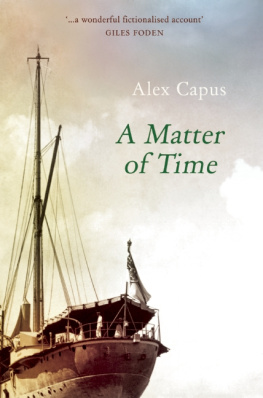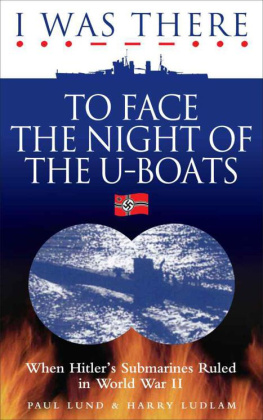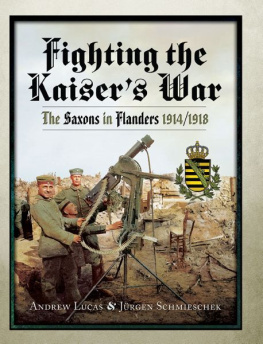Epilogue
HALF BLIND and bemused with exhaustion, Anton Rter scrambled up the railway embankment he had been making for since dawn. Snakes and lizards rustled among the clumps of coarse elephant grass, the sun was blazing high overhead, and behind him lay the East African highland plateau, which was now, at the start of the rainy season, flooded for hundreds of kilometres. For ten long days he had roamed across the flooded plain. At night he had snatched an hour or twos sleep standing up with his back propped against a tree, knee-deep in water. Sometimes, enveloped in clouds of whining mosquitoes, he had climbed to the top of a termite hill and curled up like a dog. He had eaten the raw cadavers of drowned animals lodged in the branches of uprooted trees and drunk the brackish water through which he waded. His hair was matted, his beard long, and his bare legs were covered with jungle sores. His uniform, which hung down him in tatters, was a grotesque hotch-potch acquired from the battlefields he had traversed during his escape. The tunic he had taken from a dead Belgian askari, the khaki shorts from a Rhodesian sergeant, the sun helmet from a South African officer. The sandals he had fashioned out of the remains of his own boots.
Now he was lying prone between the rails with his face pressed against the rust-red ballast, listening to the cicadas deafening song without daring to peer over the embankment. He had no idea what to expect or hope for. If the flooded savannah extended all the way to the horizon, as he feared, he would die of hunger and exhaustion. If there was a native village, its inhabitants would kill him like vermin. And if he encountered some enemy soldiers, he would be shot, strung up, or at best clapped in irons.
All at once a smell assailed his nostrils: the scent of hot oatmeal porridge. He sniffed, incredulously at first, then consumed with greed. There was no doubt about it, his hunger-whetted senses had not deceived him. It was oatmeal porridge, presumably without sugar or salt, the way the British liked it, and very probably made with water instead of milk. But porridge it undoubtedly was. Anton Rter raised his head, gripped the scorching hot rail with both hands and hauled himself to the edge of the embankment. Once there, he had no eyes for the Kings African Rifles platoon encamped on the edge of a copse a mere stones-throw away. He took no notice of the five armoured cars, the mortars, machine guns and stacks of ammunition boxes, he ignored the thirty soldiers in immaculate uniforms who were pitching their tents, unloading supplies or relaxing in the shade of the trees. He had eyes for one thing alone: the unguarded copper cooking pot fragrantly steaming over a fire on the edge of the copse some distance from the tents. Scrambling to his feet, he dashed down the embankment, seized the cooking pot, and staggered off into the trees. Deaf to the British soldiers startled yells, the barking of dogs and the whistle of bullets, he disappeared into the sheltering gloom among the trees. After only a few steps he fell, complete with cooking pot and porridge, into a sunken stream bed he had failed to see through the dense undergrowth. When he recovered his senses, grazed, bruised and scalded by hot porridge, he crawled beneath the roots of a fallen tree and strained his ears. The shouts and barking did not seem to be coming any nearer, so he licked the porridge off himself, knowing that he would be found sooner or later. Then he fell asleep, oblivious of the porridge, the gunfire, the dogs, the railway embankment, the interminable, waterlogged savannah, and all that he had done, endured and undergone in the last four years.
The Hippos Came at Night
HUMAN BEINGS do not spend every moment of their lives weighing up the importance or unimportance of the things they do as time goes by. They knead their dough, tote their stones or curry-comb their horses. They have toothache and make plans, drink soup and go for a walk, and before they know it a city of millions has been supplied with bread, a pyramid built or an empire toppled. Great and imperishable deeds are not performed in full awareness of their significance. People dislike questioning themselves all the time. On Sundays or New Years Eve, perhaps, but not while at work.
Master shipwright Anton Rter certainly didnt cudgel his brains about the historical importance of the moment when, shortly after half past ten on the morning of 20 November 1913, the siren of the Meyer Werft shipyard at Papenburg summoned him to attend the naming ceremony. A break was a break, after all. There would be speeches and schnapps for all, plus tobacco in those long Dutch clay pipes of which the shipyard kept boxes in stock for such occasions. Rter paced the engine room of the brand-new vessel with economical steps. He carefully adjusted the steam regulator, listening to the rhythm of the pistons, the hum of the wheels and the hiss of the valves. While the brass band of the Papenburg Gymnastics Club was playing Hail to Thee in Victors Crown outside, he checked the generators voltage, glanced into the furnaces and made sure the freshwater cock was open. He was proud of the Gtzen. She was his ship the largest and finest vessel ever built at Papenburg, and Rter had designed her. He had drawn the original plans and supervised her construction for ten long months, performing the trickiest and most important operations with his own hands. Ever since the keel was laid he had spent his days and often his nights inside the framework of the hull. His thoughts had revolved around the ship when he was awake, just as he had dreamed of her when asleep. And now she was finished. The engines were turning over smoothly, the steam pressure was steady. Rter gave no thought to the fact that he was going to dismantle his handiwork immediately after the naming ceremony, breaking it down into its smallest components. That was his job, after all, and it would present no technical problems. He wiped his hands on a rag and made his way up to the main deck.
The Gtzen, dressed overall in the black-white-and-red of imperial Germany, reposed on the stocks with her steam engines hissing, her funnel smoking, and her screws turning in mid air. She looked all set for launching. Had the retaining ropes been severed, she would have slid sideways off the blocks and down the oil-sodden timbers of the slipway into the Turmkanal. As usually happens when a vessel is launched sideways-on, a tidal wave running the full length of the hull would have washed over the field on the opposite bank, complete with its contents which was why the children of the town would have been standing there with big wicker baskets, ready to gather up the wriggling fish left stranded on the grass. The ship would then have glided along the Sielkanal and into the northwards-flowing Ems, across the Dollart, past the East Frisian Islands, and out into the North Sea, there to fulfil her destiny.
But this time there were no children standing in the field because theyd known for months that the Gtzen would not be launched. The whole town was aware that the Colonial Office had ordered a ship capable of being dismantled and reassembled elsewhere like a construction set, so to speak. Everyone also knew that Anton Rter was going to pack up the Gtzen in five thousand wooden crates and rebuild her deep in the African interior to the south of Kilimanjaro, near the sources of the Nile in the legendary Mountains of the Moon. The shipyard workers had realized, all the time they were building the ship, that they would set about her like termites immediately after her christening that they would soon be undoing every screw they tightened and removing every plank they laid. Despite this, Rter had been obliged to intervene on countless occasions because one of them was caulking seams or riveting plates together permanently instead of temporarily securing them with bolts, either out of a craftsmanlike sense of duty or from sheer force of habit.












